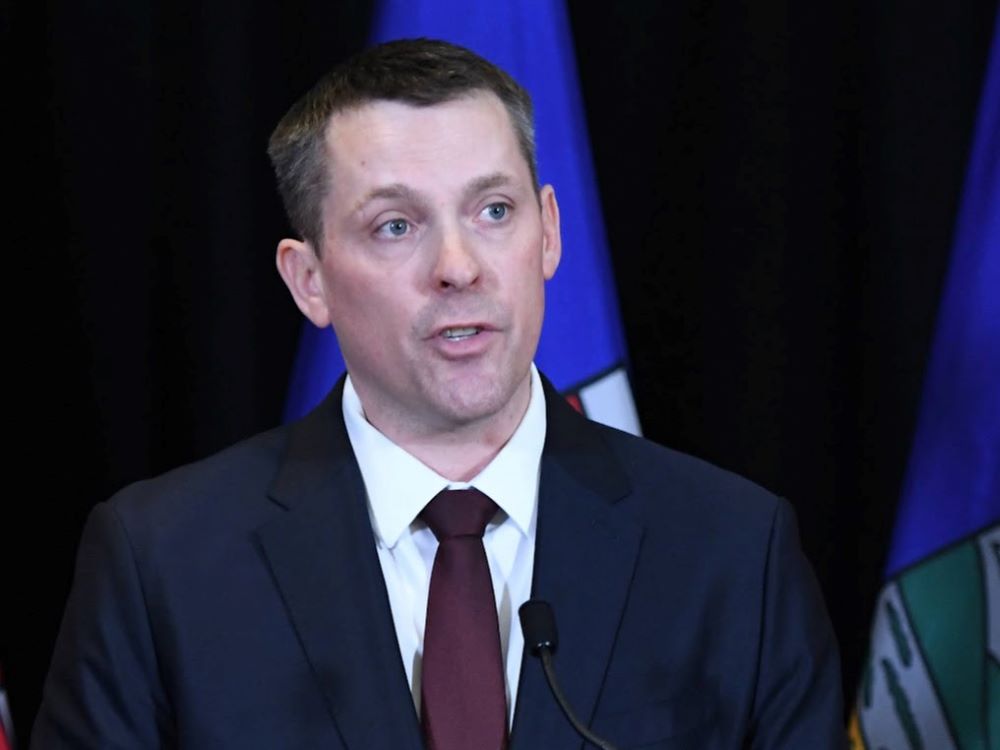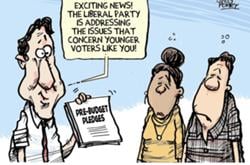To hear Alberta Finance Minister Nate Horner tell it this week, you’d almost think there’s been no inflation in Alberta since the pandemic.
Well, Horner is a scion of Alberta’s enduring and (mostly) Conservative Horner political clan who says he “had the opportunity to buy my grandfather’s ranch,” so perhaps he didn’t notice it quite the way the rest of us have.
It’s also true that the United Conservative Party has had an active policy of wage suppression, and not just in the public sector, since before Jason Kenney became premier in 2019.
Unionized working people have noticed inflation, of course, and that is leading to proposals in bargaining for pay increases that seem large in percentage terms, but that reflect how much their bills have gone up.
Horner published a statement on the Alberta government’s official website assailing the Alberta Union of Provincial Employees for its monetary proposal in its current round of collective bargaining on behalf of the province’s 22,000 civil servants.
Naturally, Horner’s statement began with the traditional pro forma declaration of how “Alberta’s government truly values public services and the professionalism and dedication of the people who deliver them.”
After that, though, he quickly got down to business, Conservative style.
“Recently, the union representing government employees, the Alberta Union of Provincial Employees, told the government that they are demanding a 26-per-cent wage increase over the next three years. The AUPE claims that government employee wages have fallen behind.
“Albertans, and indeed all Canadians, have not seen a wage increase of this size,” his statement continued, cutely conflating percentage increases with market rates. “The Conference Board of Canada found most working Albertans received a salary increase between two and three per cent in 2023 and 2024.”
The government statement, obviously written by one of the communications professionals assigned to Horner’s office, goes on in the same vein, insisting that the government’s offer of 7.5 per cent over four years is reasonable.
This is what is commonly known as “bargaining in the media,” and while it may or may not technically qualify as bargaining in bad faith, it’s certainly bad form.
“Given the union’s extreme wage positions, working towards a fair and reasonable settlement in a timely manner will be difficult,” the minister’s statement huffily concluded. “The Alberta government will not increase taxes or cut programs, services, or workers to give unprecedented salary increases that will result in pay well above market rates.”
The latter sentence, it says here, amounts to confirmation the government is not bargaining in good faith. That said, I’m just a blogger, not the Alberta Labour Relations Board.
Horner’s statement, said Athabasca University labour relations professor Bob Barnetson, “is wildly disingenuous.”
“Workers have jobs to pay their bills, and the bills have gone up about 20 per cent between 2020 and 2024,” he noted in an email. “How can Horner say he is looking at the evidence when he is clearly ignoring the impact of inflation on workers’ ability to afford things, like food and housing?”
Yes, Barnetson added, 26 per cent sounds like a lot, “but after a decade of almost no increases and five years of rampant inflation, it is an entirely reasonable ask. Why should public-sector workers have to subsidize the provision of government services through wages that constantly shrink due to inadequate cost-of-living increases?”
For its part, AUPE accused the minister of making “inappropriate statements.”
“We are disappointed to see the government make unwarranted and unhelpful statements,” said AUPE president Guy Smith. “Negotiations should take place in good faith and at the bargaining table, not in the press.”
“The government has been aware of the union’s monetary proposals since we made them on March 6,” Smith noted. “We will hold to our demands as they are fair and reasonable. The cost of living has increased for everyone, and every worker has the right to fair, livable compensation from their employers.” ![]()

















Tyee Commenting Guidelines
Comments that violate guidelines risk being deleted, and violations may result in a temporary or permanent user ban. Maintain the spirit of good conversation to stay in the discussion and be patient with moderators. Comments are reviewed regularly but not in real time.
Do:
Do not: